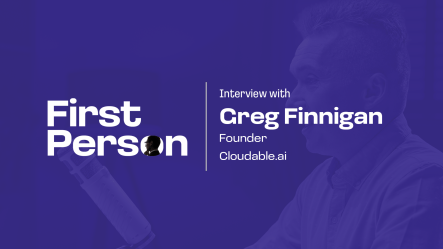AI agents are here. Leaders must learn to design, innovate and lead ethically if they want their businesses to stay ahead.

The agentic AI era is here, and it will reshape how businesses operate. The question is: Is your leadership team equipped to handle it? How quickly can you equip your leadership team and workforce with the capabilities to harness their power?
This isn’t just about integrating more automation; it’s about leading organizations through a paradigm shift where autonomous AI agents will increasingly define workflows, decision-making and competitive advantage. This necessitates a strategic focus on three core leadership skills, designed not just to future-proof individual careers, but to ensure the enduring resilience, transformation and innovative capacity of your entire enterprise.
1. The “agent architect”: Mastering prompt engineering and strategic oversight
The Challenge: In the traditional IT landscape, leadership defines requirements and teams build to spec. In the Agentic Era, the “spec” becomes a high-level goal, and the “build” is largely executed by autonomous agents. Without effective guidance, these agents can stray, underperform or even introduce new risks.
The skill: Leaders must transition from simply demanding outcomes to becoming Agent Architects capable of strategically designing agentic workflows. This involves:
- Advanced prompt engineering. Not just writing queries, but crafting multi-modal, iterative instructions that guide autonomous agents through complex, multi-step tasks to achieve desired business objectives.
- System-level oversight. Establishing governance frameworks to monitor agent performance, resource utilization and adherence to company policies. This includes defining clear KPIs for agent “employees” and developing strategies for intervention when agents deviate.
- Inter-agent orchestration. Understanding how different AI agents (e.g., a marketing agent, a supply chain agent, a customer service agent) will interact and collaborate to achieve broader organizational goals.
They must also ensure there are “clear chains of responsibility for agent decisions” as highlighted by Salesforce.
Strategic imperative: Equipping your technical and strategic leaders with “agent architect” skills ensures that your AI investments yield tangible, aligned business value, transforming raw AI capability into reliable, autonomous operational power. This is where the rubber meets the road in terms of AI ROI.
2. The “innovation orchestrator”: Amplifying human creativity and strategic foresight
The challenge: If AI agents handle increasingly complex execution, where does human value reside? The risk is not just job displacement, but a devaluation of the unique human capacity for truly novel, strategic and empathetic thought.
The skill: Leaders must become innovation orchestrators, leveraging AI agents to liberate human talent for its highest purpose. This means:
- Identifying white space. Directing human teams to focus on areas where AI currently cannot excel: breakthrough innovation, defining entirely new market opportunities and complex, ambiguous problem-solving that requires intuition and abstract reasoning.
- Cultivating a culture of “AI-augmented creativity.” Encouraging teams to use agents as ideation partners, research assistants and execution engines, freeing humans to explore more audacious ideas, prototype faster and iterate more dynamically.
- Strategic visioning. The C-suite’s role intensifies in setting the long-term vision and ethical guardrails. While agents execute the “how,” human leaders must continually define the “why” and the “where to next,” ensuring the organization’s trajectory remains aligned with market evolution and societal values.
As the Harbinger Group notes, leaders must view AI as a “strategic partner” to be effective in this new era.
Strategic imperative: By positioning humans as the strategic brain and creative heart, augmented by AI agents’ execution prowess, organizations ensure they remain at the forefront of innovation, continuously generating new competitive advantages that cannot be easily replicated.
3. The “ethical steward”: Navigating autonomy with accountability and trust
The challenge: As AI agents gain autonomy, they also inherit the potential for unintended consequences: biased outputs, security vulnerabilities or actions that inadvertently violate ethical norms or regulatory compliance. A recent EY survey found that while three-quarters (76%) of the surveyed companies are currently using or planning to use agentic AI in the next year, only 56% are familiar with the associated risks. This highlights a significant gap between contextual understanding and risk management.
The skill: Every leader, especially the C-suite and those charged with technological oversight, must become an Ethical Steward of agentic AI. This requires:
- Establishing robust governance. Developing clear policies for agent behavior, data usage, transparency and accountability. This includes defining who is responsible when an autonomous agent makes an error.
- Proactive risk assessment. Systematically identifying and mitigating potential ethical, legal and operational risks associated with autonomous agent deployment, from data privacy (e.g., GDPR, CCPA implications) to market manipulation.
- Cultivating trust and transparency. Communicating clearly with stakeholders — employees, customers, investors and regulators — about how AI agents are being used, their benefits and the safeguards in place. Building trust is paramount for sustained adoption and public acceptance.
Furthermore, Splunk emphasizes the need for leaders to “orchestrate human-AI collaboration” by setting ethical guardrails and focusing human effort where it drives the most impact.
Strategic imperative: Without strong ethical stewardship, the promise of the agentic era can quickly turn into significant reputational damage, legal liabilities and a loss of stakeholder trust. Leaders must prioritize the responsible deployment of AI agents as a foundational element of long-term business sustainability and social license to operate.
Leading in the agentic frontier
The agentic AI era demands a new kind of leadership. For businesses around the globe, success will be defined not by the sheer number of agentic AI tools deployed, but by the strategic foresight and human capabilities to effectively architect, orchestrate and ethically steward these powerful autonomous systems. Investing in these three leadership skills is not merely professional development; it’s a strategic imperative for navigating and winning in the future of work.
Transform your leadership: Invest in these essential skills today to secure your enterprise’s future.
This article is published as part of the Foundry Expert Contributor Network.
Want to join?










